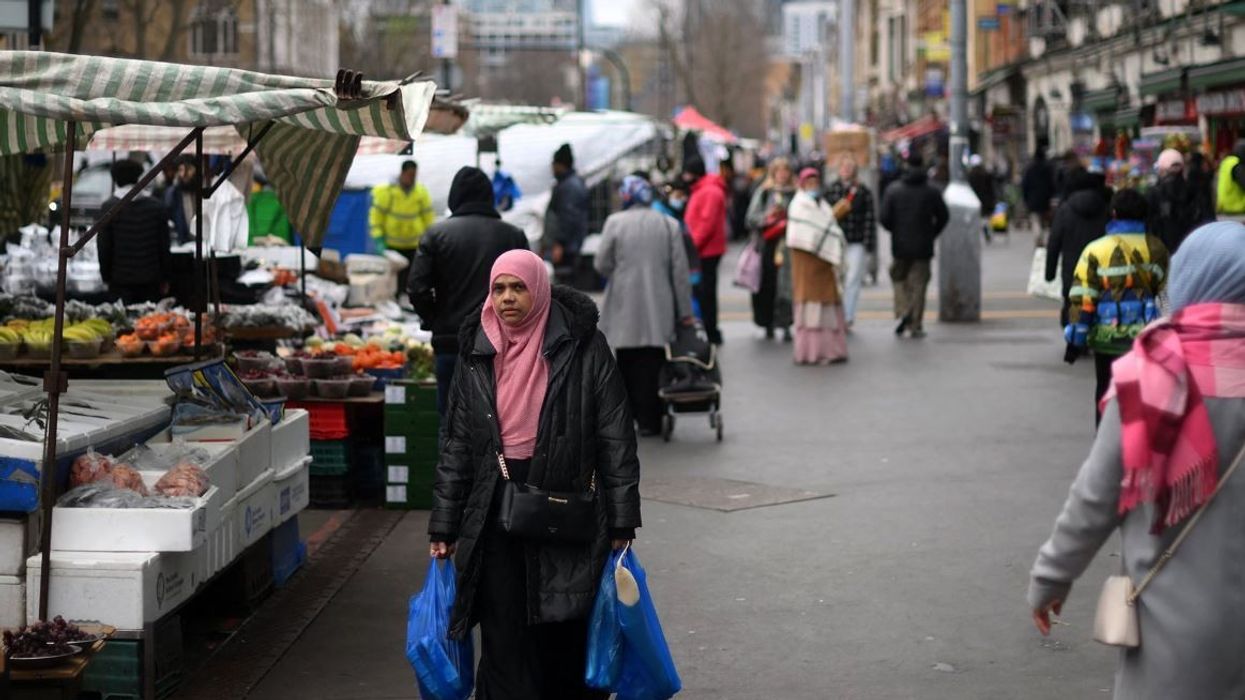RISING food prices during the cost of living crisis have had a bigger impact on south Asian families and businesses, according to experts.
They have highlighted that the inflation of products – including rice, cooking oil and spices – has disproportionately affected Asian households.
The Runnymede Trust think-tank said the cost-of-living crisis will impact ethnic minorities and vulnerable communities disproportionately.
Food prices in the UK continued to surge at the fastest rate in nearly 45 years in April with staples like sugar, milk and pasta up sharply, according to figures.
The overall UK inflation rate fell sharply to hit single figures in May for the first time since last August. But it did not decline as much as expected and the chancellor Jeremy Hunt said food prices remained “worryingly high”.
Ruhul Tarafder, who runs Jhal Chilli takeaway in Kent and a merchandising firm, told Eastern Eye: “Cooking oil has gone through the roof since the Ukraine war - it was £17-18 for a 20 litre drum, it’s now £35-40 per drum and Asian takeaways use a lot of oil.
“Rice, meat, chicken, milk for making paneer and cream we make, nothing has come down.
“So, there is no profit to be made since the new year – we are just breaking even, surviving,” Tarafder said.
“It is now £35-45 for a box of chicken and lamb, it’s gone up £10-12 a box.”
He added: “People who were ordering a takeaway once a week and now doing it once a month, everyone is struggling.
“Lots of restaurants and takeaways are closing, especially outside of London.” The Office for National Statistics (ONS) launched a website in May that allows people to track their own inflation rate by examining the price changes of more than 450 everyday items.
It shows that a 500g-1kg bag of Basmati rice has risen by 13 per cent in the past year, a dozen eggs increased by 37 per cent and a whole chicken has soared by 23 per cent.
The website also shows the price of a main course at an Indian takeaway is now £9.10 compared to £8.33 last year, a nine per cent hike.
Manju Malhi, a chef and food writer, was awarded the British Empire Medal for her services to the community including teaching skills to older people during the pandemic through healthy cookery courses. She told Eastern Eye, “What I have noticed as a chef teaching people how to cook is that my ingredients shopping has increased by at least 20 per cent.
“I generally try to be financially savvy when purchasing food, but I feel that I need to be even more frugal in order to keep cooking costs down.
“It is making an impact on many Asian households who are buying less items, but spending more money.
“Like most consumers, they feel that they have to tighten their belts on basic necessities especially vegetables, fruits, rice and lentils. And any available good quality surplus food that is accessible, they are more than happy to accept and share and in a small way tackle food waste.”
Helen Barnard, from the Trussell Trust charity that works to end the need for food banks, said: “There are a multitude of reasons why people have been forced to use food banks, including the rising cost of living and food inflation.
“However, for too long people have been going without because social security payments are not based on a real reflection of life’s costs, pulling people deeper into unacceptable hardship as a result.
“We all deserve the dignity of staying warm, fed, and protected from poverty and we know with the right financial support, people would not be forced to experience hunger or turn to charity for the essentials. It’s time to guarantee our essentials and for the UK government to urgently change the law so that the standard allowance of Universal Credit will always cover our essentials.”
The New Economics Foundation warned last year that Black, Asian and other minority ethnic households will experience an average increase in the cost of living 1.6 times higher than their white counterparts as people on low or insecure incomes are often forced into pricier arrangements such as prepayment meters, higher-cost credit or being unable to buy everyday goods such as food in bulk.
And the Food Foundation has said minority ethnic families are already twice as likely to be suffering from food insecurity than white households.
Mohsin Rashid is CEO of ZIPZERO, an app which earns users cash to pay bills. He said: “Inflation falling into single digits after seven long months is certainly welcome news to Britons everywhere.
“But we are by no means in the clear. Inflation remains at astronomic levels and, crucially, high prices continue to hit consumers’ pockets where it hurts the most: their grocery bills.
“Even with savvy spending, consumers are very limited in what they can do given the extreme price rises they have been subjected to over the past 18 months. Shoppers are having to make very diffihousehold. Britons need relief from endless price hikes; equitable solutions must be found between supermarkets and their customers.”




